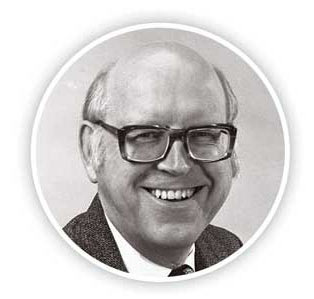Top 260 Processed Quotes & Sayings - Page 5
Explore popular Processed quotes.
Last updated on April 20, 2025.
We hypostatize information into objects. Rearrangement of objects is change in the content of the information; the message has changed. This is a language which we have lost the ability to read. We ourselves are a part of this language; changes in us are changes in the content of the information. We ourselves are information-rich; information enters us, is processed and is then projected outward once more, now in an altered form. We are not aware that we are doing this, that in fact this is all we are doing.
Since the waiting time required during the rendering process has been dramatically shorter in the last 10 years, I think that CGI animation has finally become practical. It is a fact that I processed the Steamboy work based on the assumption that the machine spec would be higher. In that context, young 3D animators have also gotten more skillful in recent years. But what I didn't expect is that the skills of traditional 2D animators have become worse, and notable young animators have not come out to the scene. This is a big issue for the industry.
We are on the cusp of the emergence of a company of hidden men and women who with all faith and patience have been enduring great struggles and dealings, being processed by the Lord and filling up what is lacking in the afflictions of Christ. These are not those who seek a reputation for themselves, their passion is His glory and giving Him the church He has longed for. May God grant us all the heart of apostolic fathering and mothering that can release His power in the earth. Zion is once again in travail to bring forth her children.
Every year, the average American eats as much as 33 pounds of cheese. That's up to 60,000 calories and 3,100 grams of saturated fat. So why do we eat so much cheese? Mainly it's because the government is in cahoots with the processed food industry. And instead of responding in earnest to the health crisis, they've spent the past 30 years getting people to eat more. This is the story of how we ended up doing just that.
The ordinary person senses the greatness of the odds against him even without thought or analysis, and he adapts his attitudes unconsciously. A huge passivity has settled on industrial society. For people carried about in mechanical vehicles, earning their living by waiting on machines, listening much of the waking day to canned music, watching packaged movie entertainment and capsulated news, for such people it would require an exceptional degree of awareness and an especial heroism of effort to be anything but supine consumers of processed goods.
The ideal human diet looks like this: Consume plant-based foods in forms as close to their natural state as possible (“whole” foods). Eat a variety of vegetables, fruits, raw nuts and seeds, beans and legumes, and whole grains. Avoid heavily processed foods and animal products. Stay away from added salt, oil, and sugar. Aim to get 80 percent of your calories from carbohydrates, 10 percent from fat, and 10 percent from protein.
There is one thing that very reliably try to trumps the food supply and that is food demand. At the end of the day, the business of business is business and they are just trying to keep the customers satisfied, it depends what we want. The problem in our current mess is we want all the wrong stuff. Why do we want the wrong stuff? Because taste buds are very malleable little fellows. They learn to like what they know. We're bathing our taste buds in too much sugar, too much salt, too much processed food all day long. That's what they know and crave.
But carbon 13 [the carbon from corn] doesn't lie, and researchers who have compared the isotopes in the flesh or hair of Americans to those in the same tissues of Mexicans report that it is now we in the North who are the true people of corn.... Compared to us, Mexicans today consume a far more varied carbon diet: the animals they eat still eat grass (until recently, Mexicans regarded feeding corn to livestock as a sacrilege); much of their protein comes from legumes; and they still sweeten their beverages with cane sugar. So that's us: processed corn, walking.
What I think is important about essayists, about the essay as opposed to a lot of personal writing is that the material has to be presented in a processed way. I'm just not interested in writing, "Hey, this is what happened to me today." You get to a place that has very little to do with your personal experience and talks about some larger idea or something in the culture. I don't think you can get to that unless you have had a lot of time to gestate and maybe if I was taking a lot of notes while stuff was going on, I wouldn't be able to get to that place as easily.
If you live in the South, you are often a very short distance from a garden, or even a farm owned by your family or by your neighbor's family. When I was a child, even though I grew up in an era of highly processed food, the grocery store sold local field peas, lima beans, tomatoes, and sweet potatoes. While there is a deep sense of place in the South - and the foods of this place - I don't want to present a pastoral vision of the contemporary South. The majority of Southerners cannot access fresh, local, affordable food.
In the first few pages, Kundera discusses several abstract historical figures: Robespierre, Nietzsche, Hitler. For Eunice's sake, I wanted him to get to the plot, to introduce actual "living" characters - I recalled this was a love story - and to leave the world of ideas behind. Here we were, two people lying in bed, Eunice's worried head propped on my collarbone, and I wanted us to feel something in common. I wanted this complex language, this surge of intellect, to be processed into love. Isn't that how they used to do it a century ago, people reading poetry to one another?
It has been a long road from Plato's Meno to the present, but it is perhaps encouraging that most of the progress along that road has been made since the turn of the twentieth century, and a large fraction of it since the midpoint of the century. Thought was still wholly intangible and ineffable until modern formal logic interpreted it as the manipulation of formal tokens. And it seemed still to inhabit mainly the heaven of Platonic ideals, or the equally obscure spaces of the human mind, until computers taught us how symbols could be processed by machines.
We have a society that monumentally conspires against the pursuit of health. We have wave after wave of labor-saving technology that says don't ever use your muscles for anything, along with messages that you should be more physically active. We have, every year, the introduction of hundreds, if not thousands, of new highly processed foods, the majority of which glow in the dark. At the same time we're telling people: eat foods closer to nature. We have schools where we teach children to sit still all day long so they can become adults we can't get off couches with crowbars.
The passive American consumer, sitting down to a meal of pre-prepared food, confronts inert, anonymous substances that have been processed, dyed, breaded, sauced, gravied, ground, pulped, strained, blended, prettified, and sanitized beyond resemblance to any part of any creature that ever lived. The products of nature and agriculture have been made, to all appearances, the products of industry. Both eater and eaten are thus in exile from biological reality.
As modern-day neuroscience tells us, we are never in touch with the present, because neural information-processing itself takes time. Signals take time to travel from your sensory organs along the multiple neuronal pathways in your body to your brain, and they take time to be processed and transformed into objects, scenes, and complex situations. So, strictly speaking, what you are experiencing as the present moment is actually the past.
The other way that you democratize the food movement is through the public school system. If you can pay enough for the school lunch system so that it can actually be cooked and not just microwaved, so that these schools can buy local food, fresh food, because right now it's all frozen and processed, you will improve the health of the students, you will improve the health of the local economy, and you will have better performing students.
If one yearns to see the face of the Divine, one must break out of the aquarium, escape the fish farm, to go swim up wild cataracts, dive in deep fjords. One must explore the labyrinth of the reef, the shadows of the lily pads. How limiting, how insulting to think of God as a benevolent warden, an absentee hatchery manager who imprisons us in the 'comfort' of artificial pools, where intermediaries sprinkle our restrictive waters with sanitized flakes of processed nutriment.
Of all the ills of man which can be successfully processed by Scientology, arthritis ranks near the top. In skilled hands, this ailment, though misunderstood and dreaded in the past, already has begun to become history. Twenty-five hours of Scientology by an auditor who fairly understands how to process arthritis can be said to produce an invariable alleviation of the condition. Some cases, even severe ones, have responded in as little as two hours of processing, according to reports from auditors in the field.
India has the largest number of hungry people. Yet it's an outcome of precisely the same mechanism. It's the control of agriculture that drives down the price it paid for food that it buys from farmers, who are the poorest people. Then you're paying very little for food. You're underpaying the poorest people in any society. Then they're marketing to us the things that are most profitable to them. And those are the things that are packaged and processed and what-have-you. That means you have the simple thing of the explosion of obesity and hunger as a result of capitalism in our food system.
Reshaping life! People who can say that have never understood a thing about life—they have never felt its breath, its heartbeat—however much they have seen or done. They look on it as a lump of raw material that needs to be processed by them, to be ennobled by their touch. But life is never a material, a substance to be molded. If you want to know, life is the principle of self-renewal, it is constantly renewing and remaking and changing and transfiguring itself, it is infinitely beyond your or my obtuse theories about it.

















